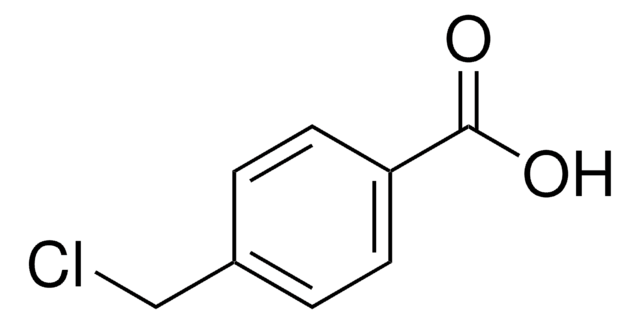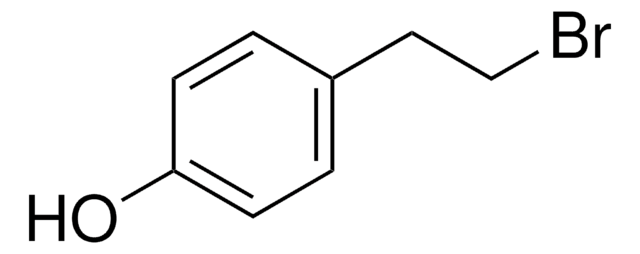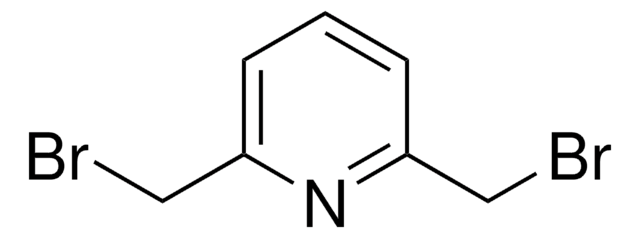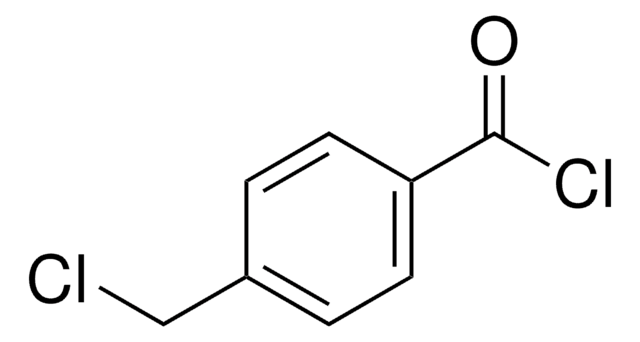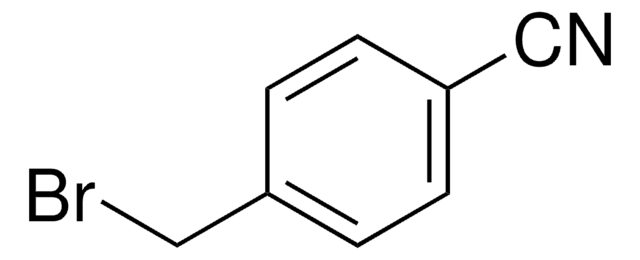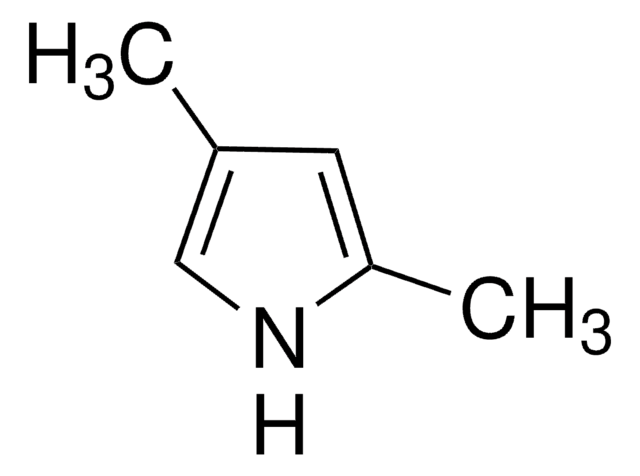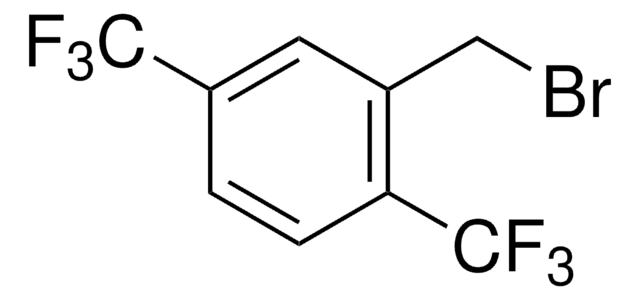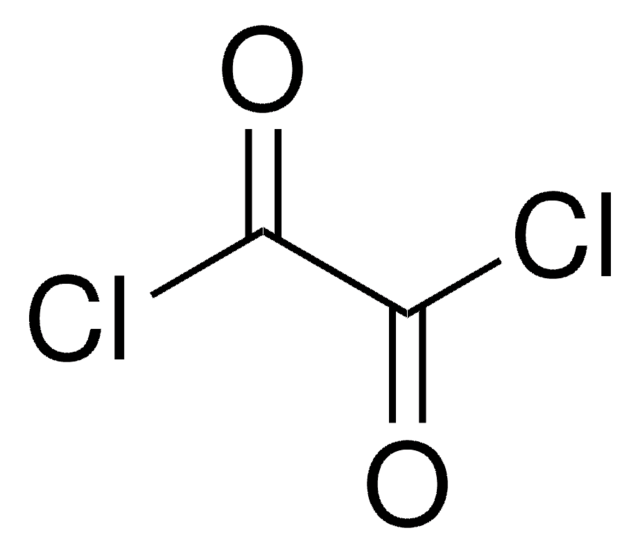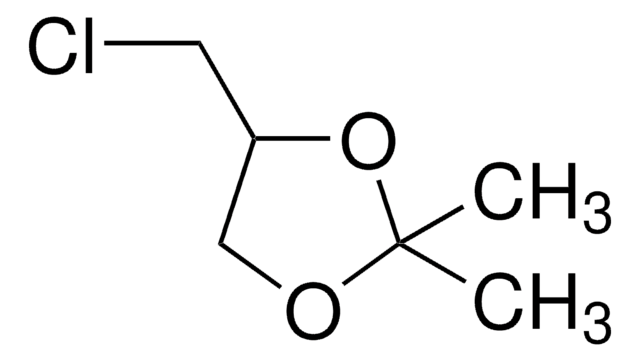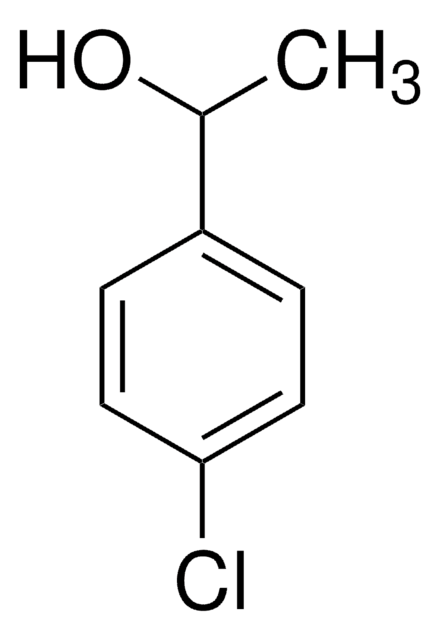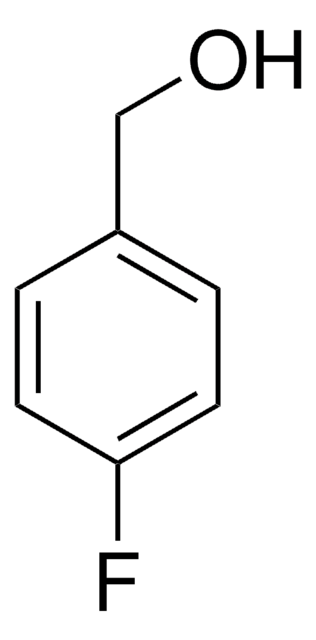526126
4-(Chloromethyl)benzyl alcohol
99%
Synonym(s):
1-(Chloromethyl)-4-(hydroxymethyl)benzene, 4-(Chloromethyl)benzenemethanol, 4-Chloromethylbenzyl alcohol, 4-Hydroxymethylbenzyl chloride, [4-(Chloromethyl)phenyl]methanol, p-(Chloromethyl)benzyl alcohol, p-(Hydroxymethyl)benzyl chloride
About This Item
Recommended Products
Quality Level
Assay
99%
mp
58-60 °C (lit.)
functional group
chloro
hydroxyl
SMILES string
OCc1ccc(CCl)cc1
InChI
1S/C8H9ClO/c9-5-7-1-3-8(6-10)4-2-7/h1-4,10H,5-6H2
InChI key
OGALXJIOJZXBBP-UHFFFAOYSA-N
General description
Application
Signal Word
Danger
Hazard Statements
Precautionary Statements
Hazard Classifications
Skin Corr. 1B
Storage Class Code
8A - Combustible corrosive hazardous materials
WGK
WGK 3
Flash Point(F)
Not applicable
Flash Point(C)
Not applicable
Personal Protective Equipment
Regulatory Listings
Regulatory Listings are mainly provided for chemical products. Only limited information can be provided here for non-chemical products. No entry means none of the components are listed. It is the user’s obligation to ensure the safe and legal use of the product.
JAN Code
526126-5G:
526126-VAR:
526126-1G:
526126-BULK:
Choose from one of the most recent versions:
Already Own This Product?
Find documentation for the products that you have recently purchased in the Document Library.
Customers Also Viewed
Our team of scientists has experience in all areas of research including Life Science, Material Science, Chemical Synthesis, Chromatography, Analytical and many others.
Contact Technical Service